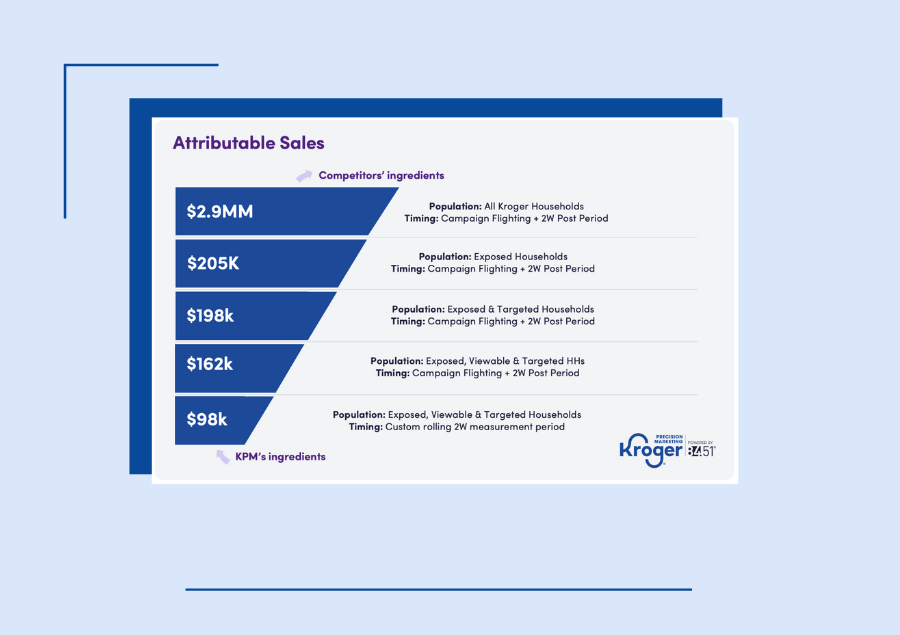
How to take the guesswork out of ad measurement
Measuring the success of an advertising campaign is like baking a pie. Just as a pie relies on the right ingredients and recipe, brands need the right data and methodology to understand how households respond to ads and what the incremental impact was. Changing any of these inputs affects the final outcome and could influence future decisions. We’ll review criteria for quality data, the impact of assumptions and provide an example of how to get accurate measurement results – a perfect pie.
Key ingredients When baking, you wouldn't substitute baking powder for baking soda. The type and quality of your ingredients directly affects the final product. Similarly, in marketing, the quality of your data influences the accuracy and effectiveness of your campaign measurements.
At Kroger Precision Marketing, our comprehensive transaction history and 96% loyalty card capture rate allow us to accurately measure sales impacts directly linked to our advertising efforts. We ensure that we only attribute sales to our initiatives without relying on assumptions or external factors.
Making assumptions about the characteristics, preferences and behavior of your audience makes it more difficult to accurately assess a campaign’s performance and skews decisions for future campaigns.
Measuring impact Once we gathered our ingredients, we can move to the recipe (methodology). Our measurement approach is based on verified shopping behavior. Because we know which households have seen the ads and what they purchase both in-store and online, we can accurately understand how advertising influences household buying decisions.
To determine the incremental impact of advertising, we use many IAB-recommended methods as well as test and control groups to create accurate comparisons across variables, such as pre-campaign spend, media interaction, loyalty and geography/division to understand what shopping behavior would look like without advertising.
This allows us to directly connect ads with sales, providing clear results without relying on estimates.
Precision matters As the chart below demonstrates, a sales attribution model that broadly measured total households led to over-attributing sales to campaign performance by over $2.8MM. By sifting the data to only include households that were exposed to viewable ads with a custom date range, the true amount was revealed at $98K.
Measuring the success of an advertising campaign requires the right ingredients, clear instructions and precise execution. Using quality data and proven methodologies produces precise ad campaign measurements versus results that could be widely off course.

Precision vs. guesswork By knowing which households saw the ads and their purchases both in-store and online, we gain clear insights into how advertising influences buying behavior. Combined with rigorous sciences utilizing IAB-recommended methods, we create accurate comparisons to also understand what shopping behavior would look like without advertising. It's a meticulous attention to detail and commitment to accuracy that enables brands to have confidence in their ad measurement results, allowing for informed decisions that drive future success. Just like the perfectly baked pie, the ability to feel confident in your measurement is pretty sweet.
Visit our knowledge hub
See what you can learn from our latest posts.




